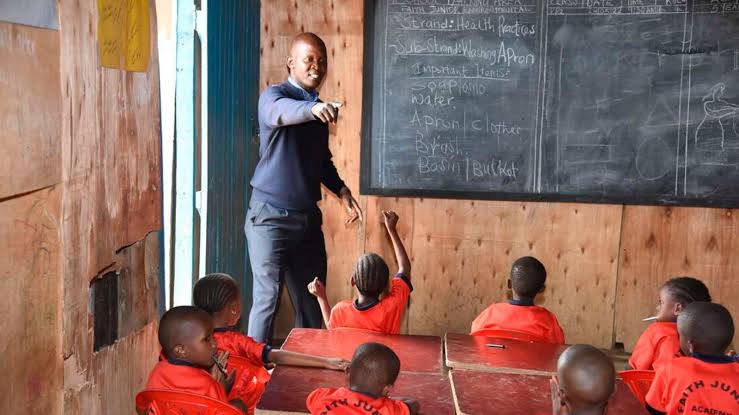Gvt Abolishes DPTE And DECTE Teaching Courses. The courses for teaching in primary schools and ECDE have now been combined into a single program called the Diploma in Teacher Education (DTE).
The teaching program for ECDE was formerly known as the Diploma in Early Childhood Teacher Education (DECTE), and the program for teaching elementary school was known as the Diploma in elementary Teacher Education (DPTE).
The sole course that ECDE and elementary trainee teachers will now need to take is DTE, which will last three years and only require a C (simple) in the KCSE.
The Teacher Training Colleges (TTCs) will admit students in September of this year, marking the implementation of the modifications.
Upon graduation the teachers will be registered by Teachers Service Commission (TSC) to handle Nursery and Primary schools (PP1 and PP2 and Grades 1 to 6 classes).
The teachers can seek employment by the county government or even TSC after receiving their TSC numbers.
The changes are part of the reforms proposed by the Presidential Working Party on Education Reforms (PWPER).
Gvt Abolishes DPTE And DECTE Teaching Courses
However the efforts must be made to ensure all stakeholders are adequately sensitised on these changes.
Graduates of this new programme will be expected to competently teach pre-primary one and two, and grades one to six.
The entry requirements remain a minimum of C (plain) in the Kenya Certificate of Secondary Education (KCSE) examination.
Since early childhood education is the responsibility of county governments, the graduates of this new programme will have the option of either working under the county governments or the national government under the Teachers Service Commission.
The PWPER report suggests that additional improvements may be in the works. According to the research, tutors are in charge of preparing teachers with the necessary pedagogical knowledge and abilities, but no organization is in charge of establishing standards.
Thus, a national framework with standards is required. The research also pointed out that, despite the fact that microteaching helps teacher candidates hone their craft and gain real-world experience in the classroom, universities persist in using a variety of organizational structures and methods, which makes standardizing practicum evaluation challenging.
This demands that we harmonize. If the ongoing and planned reforms in teacher education are carried out effectively, institutions will be able to draw in and produce competent instructors who will spearhead the changes envisioned in the new curriculum.
